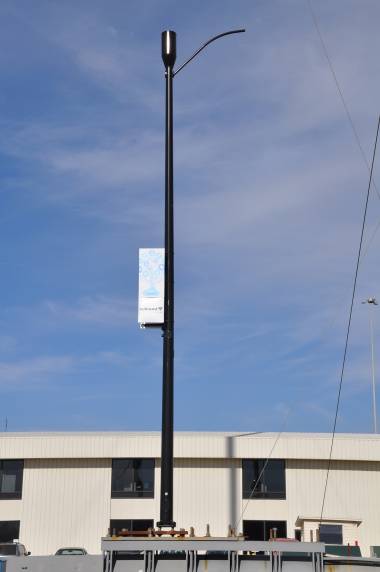Mobilitie pronounced mobility verizon wireless.
Small cell wireless facilities.
Permit fees were capped at 270 per small cell by the fcc in 2019.
Small cell facilities can be used to increase the mobile broadband network capacity in cities.
Currently there are 5 five small cell franchises in norfolk.
Small cells are typically installed on utility poles or street lights.
The board s action also included direction to return to the board within 180 days with additional requirements for small cell wireless facilities.
Below is the minute order from the february 27 2019 detailing the.
This improved service and capacity has many advantages including economic competitiveness a tech friendly reputation and more opportunities to deploy smart city and iot applications.
Small cell wireless communication facilities also called 5g are a type of wireless infrastructure.
Small cell wireless facility deployment requires streamlined federal state and local permitting rights of way application timelines and other siting and application fees and application review timelines and appeals processes to make it economically feasible for wireless companies to deploy the technology across communities.
Small wireless facilities small wireless communication facilities including 5g technology are a type of wireless infrastructure.
A small cell wireless facility typically consists of a small antenna placed on utility poles or street lights along with small pole mounted radios and other accessory equipment.
These fees are collected as general fund revenue.
A small wireless facility sometimes referred to as a small cell facility is a cellular network facility capable of delivering high transmission speeds but at lower ranges.
The antennas and equipment can be mounted on top or on the side of the pole.
Fcc removes barriers to wireless infrastructure deployment by clarifying scope of sections 253 and 332 and establishing shot clocks for small wireless facilities da fcc.
Existing wireless facilities are large antennas placed high above the ground that service a wide area referred to as macrocells.
Unlike cell towers referred to as macrocells small cell facilities typically take the form of smaller antennas 3 4 feet tall that are placed on existing infrastructure such as utility poles.
Existing wireless facilities are large antennas placed high above the ground that service a wide area referred to as macrocells.
Although they are called small this is in reference to their small coverage area not their physical size.

